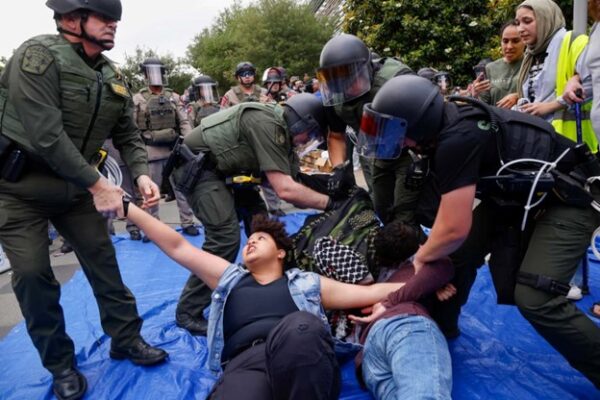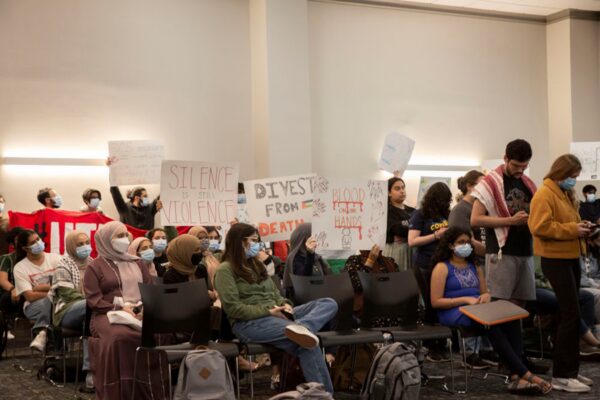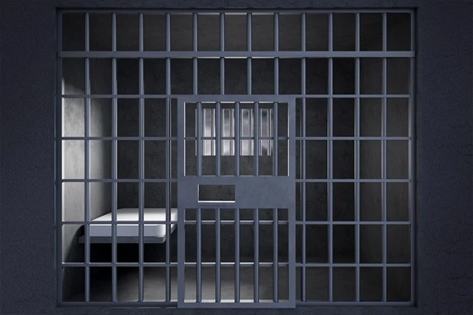What happened on campus at University of Texas at Dallas on May 1, 2024 — and in its aftermath — makes no sense to me whatsoever. On that day, colleagues, students, community members and others were shackled and jailed. And while they were released within 24 hours, they all still await trial.
I am still trying to understand how protests on college and university campuses are being interpreted — especially by upper administration. Because if I better understood, then I might better prepare myself for a future of educating those who should learn why protest matters. How it makes sense to others — or not. And what it means that we all should care about the plight of others in the world.
Yes, of course, I understand that the political issues are complicated. And yes, I appreciate that there are many ways to make sense of the situation, but we might agree that there are more and less effective ways of rendering protests “sensible.”
Certainly, I “get” that some actions can seem “dangerous.”
But I remain confused.

Law enforcement confronted an encampment of pro-Palestinian students and supporters at the University of Texas at Dallas on Wednesday, May 1, 2024. The group set up at the university campus at about 4:30 a.m. About 12 hours later, state troopers and campus police began clearing the encampment. (Photo by Juan Figueroa)
At least since October 2023, many institutions of higher education have been grappling with a maelstrom of sorts: political dissensus, environmental calamity, a general lack of shared appreciation of and respect for others worldwide, etc.
But specifically: Gaza and Israel…
We all have struggled to make sense of the tumultuous context in which we find ourselves, especially post-pandemic.
Perhaps post-pandemic but certainly in the context of a highly aggressive policing apparatus, it may not be clear what form action might take, what it might look like — how it might effectively communicate.
Apparently, protest is not that form of communication — although it should be.

Students attended the April 4 meeting in the Galaxy Rooms to speak both in support of and against S.R. 2022-40. (Photo by Viet Khue Vu)
Colleges and universities can play a meaningful role. They can — and should — be sites where students (of all sorts) can come to terms with an unsettled and unsettling political, social, environmental climate. Colleges and universities can provide opportunities for witnessing and practicing what coming to terms with a politically charged situation looks like. Colleges and universities should provide space and time for that process of making sense of things. Doing so allows people to better understand the terms and conditions that shape individual realities within the context of global realities.
Genocidal conflict, aggressive seizures of territories, general disregard for the environment, etc. These issues matter, they are meaningful for how we live (or not) in the world.
Universities and colleges have the power to make sense of where and how we find ourselves. And whether public or private, they absolutely owe the future this kind of effort: to guide us all in making sense of where we are and how we might move forward — with generosity, respect, and responsibility.
But what we have seen is that these institutions don’t — or won’t…
To be honest, I’m not sure which is worse — to not do or to not be willing to do…
UT Dallas didn’t on May 1, and they continue to demonstrate that they won’t now.
“…I have to find a way to teach at a university that wants me in jail” —Rosemary Admiral
I did not join my colleagues and students in the May protests on the UT Dallas campus. So I did not experience the hostilities of a justice system and a university administration who should have acknowledged the rights of persons to congregate and actively challenge U.S. and local policies that impact relations across the world.

Encampment on Chess Plaza, UTD. (Photo by Juan Figueroa)
I reiterate, the University of Texas at Dallas allowed 21 persons to be shackled and jailed.
Since then the university has refused to support its faculty and students. The university has denied students their degrees and access to fall 2024 course enrollment. The university has refused faculty access to the campus, except for the purposes of fulfilling their official duties. What’s more, the university is determined to allow these individuals to face the possibility of six months incarceration without institutional advocacy. Even now, these individuals have no clear sense about when their “day in court” will be scheduled.
This causes great concern.
And I am left with questions about the work of the university, its meaningfulness. I have to ask questions because I am employed — and tenured — at a university, the University of Texas at Dallas, that aspires to “[graduate] well-rounded members of a global community.” How can I believe this to be the case?
Especially when I have to ask, What do we mean by “global community?” How do “we” ensure that possibility without the university’s commitment to supporting us — all of us students, faculty, and staff?
In the shadow of what is, my questions as a scholar, practitioner, educator, mentor, and colleague concatenate: How do we cultivate a sense of responsibility to both local and global concerns? How do we make meaningful relationships matter beyond our own borders (be those neighborhood, city, state, country, hemisphere)? Why should we care? Especially if our actions — in classroom or out — promise to incur the wrath of the various institutional apparatuses that have demonstrated their disregard for the members of the community the university wants to claim as its own?

From “But first, I have to find a way to teach at a university that wants me in jail.” (Image by Enrique Ramos Lopez)
I have spent years participating in projects designed to bring to visibility unacknowledged histories of racial injustice in the U.S. I am not a historian, nor a cultural heritage scholar. But I have worked with historians and the like, and those who appreciate and participate in efforts to make tangible and legible the “discrepancies” that populate the cultural imaginary. Mostly, this is necessary because young people (K–12) in the U.S. are relegated to learning from textbooks and other materials that fail to address the various indignities that have been at play in U.S. practices since the beginning. And these practices continue to be perpetuated in the name of “freedom.”
What’s worse, educational institutions in the state of Texas are prohibited from promoting policies and practices that support diversity and inclusion across their campuses, as a result of Senate Bill 17, passed in the fall of 2023. These policies range from staffing decisions, student services and accommodations offerings, administrative roles and responsibilities (or lack thereof), and the viability of the university’s claims regarding their institutional mission and vision. This puts in jeopardy the university’s very capacity to cultivate ethical and engaged (“well-rounded?”) citizens who are prepared to confront the precarities that loom. Although, they have left us the classroom.
What will the University of Texas at Dallas do? My sense is that the university will stay the course.
“The University is committed to graduating well-rounded members of the global community…”
In a spring 2024 post, cultural commentator Anne Helen Petersen emphasizes that we as a society recognize the protests we have seen documented in the news are happening in real time and in the physical world — where our colleges and universities exist and actuate their powers. She encourages us to acknowledge this fact. Moreover, she argues that we should appreciate that this effort by students (and others) is “brave” even as it is also “angry and, frequently messy.” She suggests we recognize that what we are witnessing is adults, who have in most instances “grown up” in the time of pandemic, who are actually taking charge of the stakes for them living in real time in this world.
Ultimately, Petersen challenges us to ask a question: Shouldn’t we be demanding of our universities and colleges that they appreciate, and in fact, commend the students, faculty, and community members who have decided to stand firm and in solidarity to make sense of a criminal situation and perhaps make a difference?
Thanks to David Adelman for helping to shape this piece.
Heidi Rae Cooley is a media theorist who inquires into the relations between emerging technologies and the habits that they open onto. She collaborates with interdisciplinary teams to design geo-aware software applications. “Finding Augusta: Habits of Mobility and Governance in the Digital Era” (2014), along with its mobile application, received the 2015 Anne Friedberg Innovative Scholarship Award from the Society for Cinema and Media Studies. She is a founding editorial board member for Interactive Film and Media. She contributes to The Edge periodically.
Header image of UTD Professor Ben Wright and a colleague prior to being arrested during the May 24 demonstration against the war in Gaza. Photo by Yaakub Ira.


